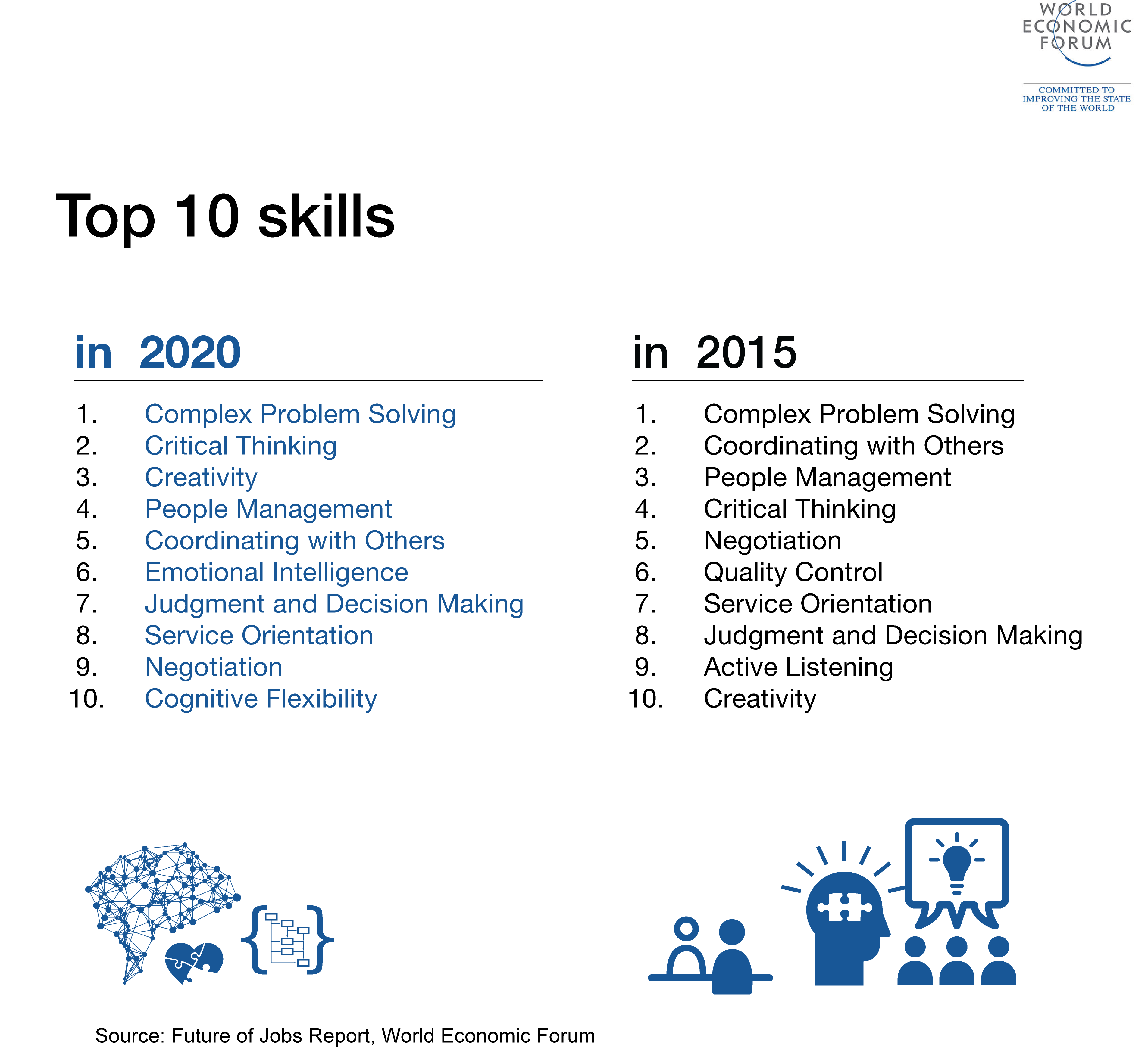
If you think that having a university degree is a guarantee to a bright future and secured employment post-graduation, brace yourself for a reality check.
A graduate who thinks that a university degree makes him stand out in the marketplace is like a car manufacturer boasting that its latest hatchback has 4 wheels and airbags.
Big deal!
Stop studying so hard!
Reputable employers are seeing less value in the university degree (report). Law graduates with soft skills and culture fit are favoured over those with high-distinctions (report). EY in the UK does not consider the university degree or A-level results when assessing candidates (report).
From this, we can see that it’s way more valuable in today’s and definitely tomorrow’s marketplace to be street-smart rather than book-smart.

According to the World Economic Forum, the top skills required for the Fourth Industrial Revolution involved exercising one’s cognitive capacities (using your head) and utilising one’s interpersonal skills (coping and dealing with other fellow humans).
Notice that examination grades or academic performance is nowhere to be found on that list.
Hence, do your work at school and study for your exams, but don’t just study. You need to do other things outside of the curriculum to be able to ensure that you are work-ready by the time you graduate.
Make sure you do all (if not at least a few) of these things.
1) Work part-time
If possible, gain relevant work experience in your field of study. This could be manifested in the form of an internship or work placement.
If not, even a non-related job (admin, customer service, hospitality) would allow you to develop several valuable and transferable skills like communication, working in a team, working under pressure, etc.
And if you aren’t working part-time, what impression might you be giving to the employers? Are you just feeding off your parents’ savings? Or do you want to show them that you are taking charge of your financial situation?
2) Volunteer
Get selfless and get out of your comfort zone. Serve and contribute to something that’s way bigger than yourself.
Volunteering allows you to develop several transferable skills as well, coupled with the opportunity to meet new people and gain new perspectives on life. It gets you to get out of your head and into the world out there.
What a great way to start making a dent in the universe!
3) Network
Your network determines your net worth.
Network, network, network. Even if you are introverted, shy or socially awkward.
Some are natural social butterflies, some just need practice. I’m the latter.
“You are the average of the five people you spend the most time with.” – Jim Rohn
If you spend enough time with 5 fit and athletic people, you’ll become the 6th.
If you spend enough time with 5 entrepreneurs, you’ll become the 6th.
If you spend enough time with 5 smart and studious individuals, you’ll become the 6th.
If you spend enough time with 5 idiots and monkeys, you know what happens.
On top of this, the same skills (communication, emotional intelligence, empathy, small talk, body language and gestures) you exercise when speaking to a stranger at a networking event is the same skills you will be needing during a job interview.
4) Create your own side project
If you can’t find experience, create your own!
Working on your own (relevant) side project shows that you are able to take initiative, step out of your comfort zone and add value to the world around you.
The could be a small business, a blog, an industry report, a case study, a magazine, etc.
If you are an accounting student, why not volunteer and offer your accounting and bookkeeping expertise to a handful of startups, charities and not-for-profits?
If you are a marketing student, why not scrutinise the websites and social media pages of a handful of small businesses, draft a brief report on how to fix those issues, and present them to the business owners?
If you are an engineering student, why not identify a common problem in your industry, do some research on the best practices which other firms globally are doing, draft a short report on your findings, and present this to engineers in your field?
***
It’s one thing to be good at your studies, it’s another to be good outside your studies.
I never consider my academic grades to be my differentiating factor, because the moment you put a scholar into the candidate mix, I’ll be out of business…unless I find other ways to stand out.
That’s where you extra-curricular activities, involvement and experiences come in!

